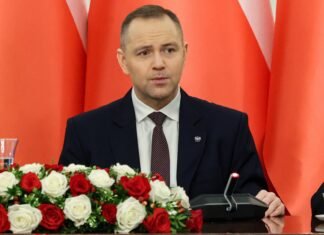At the recent congress of the National Liberal Party, President Nicușor Dan emphasized the urgent need for reform in the upcoming years. He expressed a clear message that the political landscape requires significant changes to right the wrongs of the past. His remarks highlighted a critical trend in Romanian politics: the expectation from citizens for accountability and improved governance.
Nicușor Dan stated, “We are obligated to address all the issues that have been incorrectly managed over the years.” His words resonated with many attendees, as the importance of rectifying previous mistakes in administration became the focal point of his speech. This strong call to action reflects a growing awareness within the political elite that failure to adapt and improve could lead to voter discontent.
He warned that unless substantial progress is achieved, the electorate may turn their backs on current leaders by the next election cycle in 2028. This sentiment points to a larger issue of trust in governance, especially as Romania faces various challenges, including economic uncertainty and social disparities. Dan’s assertions suggest a pivotal moment for liberal governance in Romania, where citizens are increasingly demanding transparency and effectiveness.
Beyond simply identifying problems, President Dan outlined a proactive approach to governance. He argued for concrete strategies and reforms designed to enhance public services, stimulate economic growth, and improve the overall quality of life for Romanian citizens. The emphasis on strategic planning marks a shift from reactive to proactive governance, suggesting that leaders must be forward-thinking and adaptive to the needs of the population.
Dan’s speech also highlighted the importance of unity within the party. He argued that success in implementing reforms will require collective effort and collaboration among party members. The message was clear: division and infighting could jeopardize the party’s chance to enact meaningful change. As the liberal party strives to reclaim its position as a leading force in Romanian politics, the need for cohesion is essential.
Furthermore, President Dan underscored the role of civic engagement in shaping public policy. He called for an active dialogue with citizens, insisting that their voices must be heard in the decision-making process. This belief in participatory democracy is crucial, as it fosters trust and encourages citizen involvement in governance. Engaging the public not only creates transparency but also empowers individuals to take ownership of their communities and their futures.
Looking ahead, the priority for Nicușor Dan and the National Liberal Party will be to effectively communicate these goals and strategies to the public. Building a robust narrative about the party’s commitment to addressing past mistakes while paving the way for future progress will be vital. This involves not just policy proposals, but also demonstrating tangible results that resonate with voters on a personal level.
In conclusion, the message delivered by President Nicușor Dan at the congress was a poignant reminder of the responsibilities leaders hold towards their constituents. He articulated a vision for a transparent, accountable, and engaged government that seeks to correct past errors. By acknowledging the necessity of reform and the imperative to act decisively, Dan sets the stage for a transformative period in Romanian politics. The responsibility now lies with leaders to fulfill these promises, especially as the clock ticks down to the next electoral cycle in 2028, when the electorate’s patience may no longer endure political complacency.






